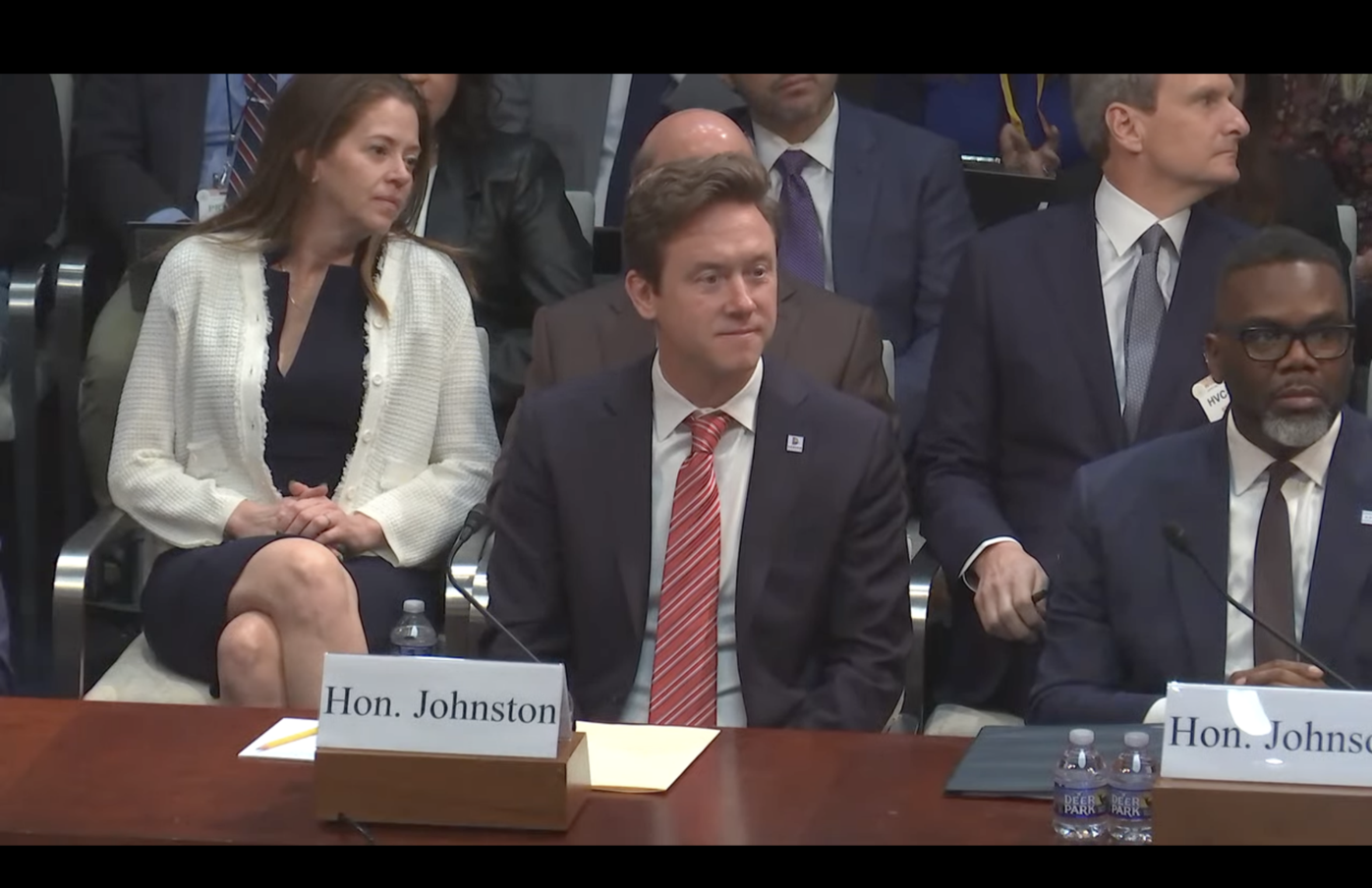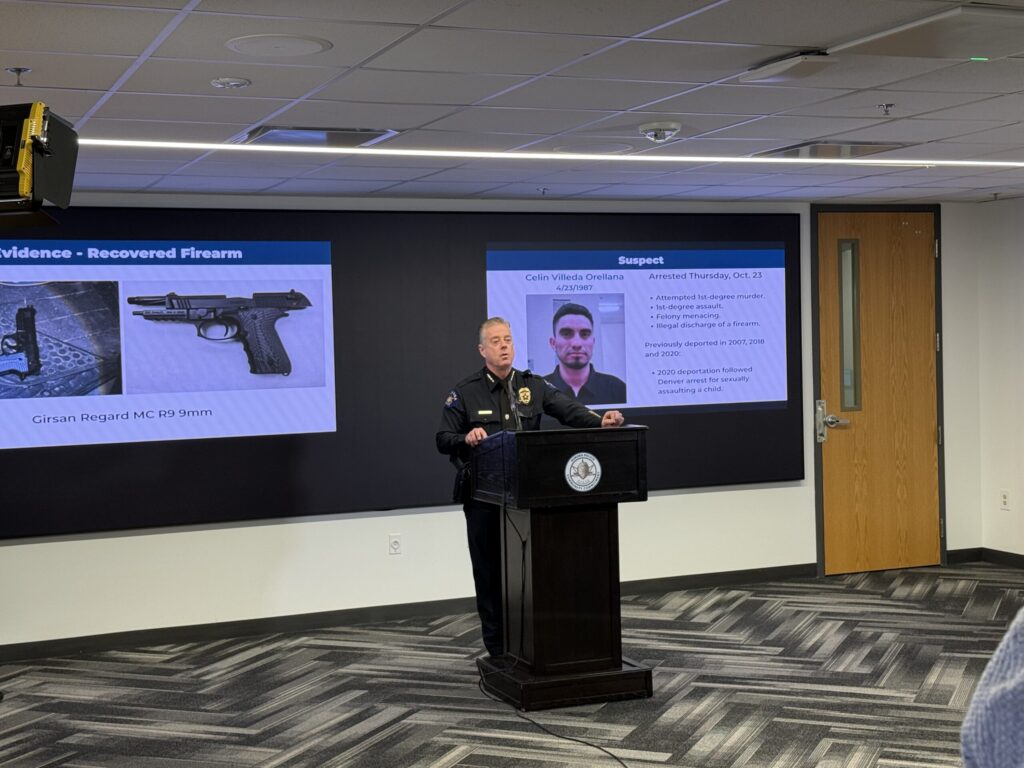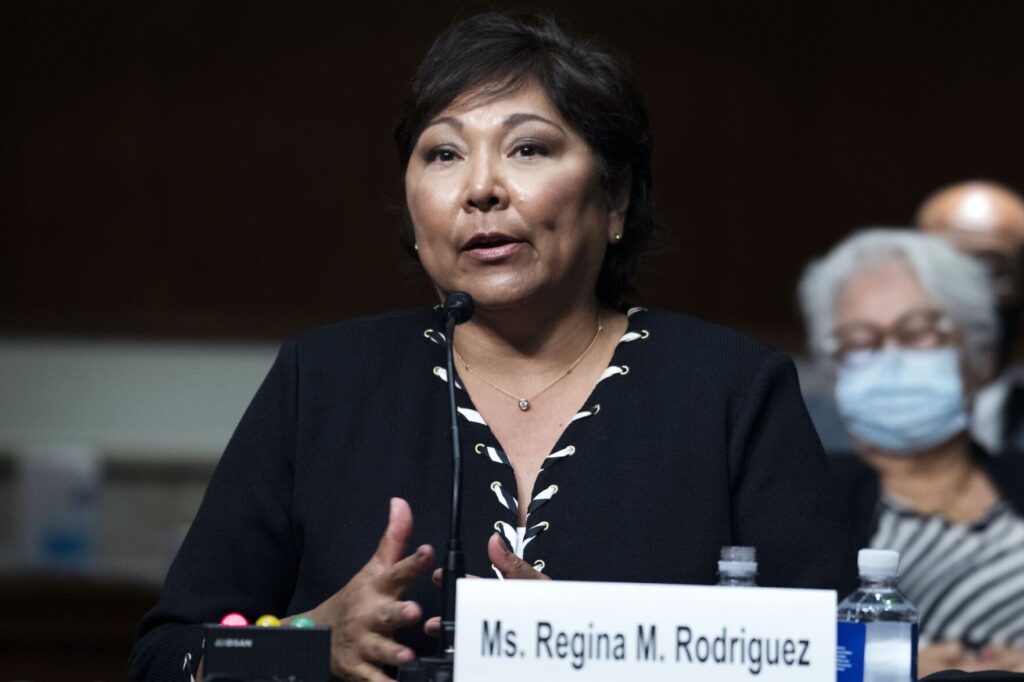Legal bill for Denver Mayor Mike Johnston for ‘sanctuary city’ hearing swells to $550,000

U.S House Oversight and Government Reform Committee | YouTube Screenshot
The legal bill for Mayor Mike Johnston’s March 5 appearance before a Congressional hearing on “sanctuary” jurisdictions grew by $300,000 this week, according to city financial documents.
That brings the total cost, so far, to $550,000.
In early June, the city paid D.C.-based law firm Covington & Burling, LLP $250,000, with city officials adding at the time that Denver didn’t have a “final tally on the cost.” The firm was hired to represent the city and Johnston during his appearance before a Congressional hearing on “sanctuary” jurisdictions.
City financial documents show that on July 30, 2025, a second payment of $300,000 was made from the city’s general fund to a law firm, citing the same purchase order PO-00163290 as the earlier payment.
A spokesperson for the mayor’s office confirmed the second payment to the law firm, but did not have further information regarding whether this would be the last invoice.
“I can tell you our team worked very hard to keep costs related to the hearing — which we did not ask to attend — to the absolute minimum, while still offering the mayor and the City of Denver legal counsel befitting a hearing of this magnitude and consequence,” Jon Ewing, spokesperson for the mayor’s office, told The Denver Gazette on Friday.
Johnston, along with Boston Mayor Michelle Wu, Chicago Mayor Brandon Johnson and New York Mayor Eric Adams, was summoned to appear before Congress to answer questions about “sanctuary” policies and their response to the illegal immigration crisis, which has been spilling from the southern U.S. border into America’s interior cities.
In February, Denver inked an agreement with Covington & Burling. Under the one-year contract with a maximum cap of $2 million, the city will pay lawyers a “discounted” rate of $1,000 per hour.
In Boston, the legal cost to Mayor Michelle Wu stood at $650,000. Wu defended the costs, saying they were necessary amid threats to jail her, according to The Boston Herald.
Johnston, along with four staff members — Chief of Staff Jenn Ridder, Senior Advisor for Strategy and Planning Mary Bowman, Acting City Attorney Katie McLoughlin and Press Secretary Jordan Fuja — traveled to Washington, D.C. for the March 5 hearing.
Travel and lodging costs for the trip totaled $11,318, according to information received by The Denver Gazette through a Colorado Open Records Act request.
The five travelers’ airfare accounted for $2,717, the meals cost $1,380, and a majority of the trip’s overall tab went to hotel expenses at $7,221.
Johnston and Denver’s policies have been at odds with Trump and his administration’s immigration priorities since the president assumed office in January. Johnston also made headlines for saying he would be willing to go to jail defending his city’s immigration stance, a statement that invited both praise and criticism.
Last May, the U.S. Department of Justice sued Colorado and Denver, alleging their policies are interfering with the job of immigration officers in a case that could have ramifications for enforcement nationwide.
The lawsuit, filed in Colorado District Court, claimed both the state and Denver have enacted “sanctuary laws” in violation of the U.S. Constitution, the latest in a series of actions by the president cracking down on so-called “sanctuary” jurisdictions.
In defending his actions, Johnston said helping the immigrants, many of whom arrived in the dead of Colorado’s winter, was the moral thing to do, not to mention housing them meant keeping thousands from becoming homeless.
Denver also joined Chicago and Pima County in Arizona in filing a lawsuit against the Trump administration over its termination of federal funding awarded to local jurisdictions to help defray the cost of aiding the tens of thousands of immigrants who arrived in America’s interior cities after illegally crossing the U.S.-Mexico border. Denver alleged in the lawsuit it’s owed about $25 million in funds promised by the Federal Emergency Management Agency.
















